Mass uprisings in Tunisia and Egypt have evicted autocrats ruling for two or three decades. Libya, sandwiched between these countries and under a dictator’s yoke for over four decades, could hardly have escaped unscathed. If Zine al-Abidine Ben Ali of Tunisia and Hosni Mubarak of Egypt had outlived their political lives, and change at the top was long overdue, this was true of Muammar Gaddafi’s case even more.
Unlike Gaddafi, Ben Ali and Mubarak were not eccentrics with unorthodox ideas about governance and disruptive external agendas. Nor were they tainted with complicity in terror attacks. Both, enjoying strong Western support, in fact, gave stability to their countries for many years, keeping Islamic groups in check and suppressing terrorism.
The two, without succour from a West fearful of alienating the nascent democratic forces, were hounded out of office by street protests. But in the new environment of uncertainty created by the removal of some solid pillars of Western support in the region, the survival of Gaddafi, a quirky and unstable factor in Arab/north African politics, would have been doubly damaging for Western interests. The wave of change sweeping north Africa had to wash away this megalomaniac in its wake.
What distinguishes the revolt in Tunisia and Egypt from that in Libya is that whereas in the former case, the populace vented its anger dramatically in the capital city itself, under the very nose of the regime, in Libya, the revolt occurred along political, geographical and tribal fault lines in the country. It was predominant in the eastern part of the country, which was integrated into a larger Libyan entity artificially following the demise of the Ottoman Empire. The revolt, therefore, has the characteristics of a civil war, unlike in the case of the unrest in Tunisia and Egypt, with the military keeping its neutrality in one case and becoming the instrument of reprisals in the other.
The Libyan revolt is not a peaceful movement for democracy led by the Facebook generation, but an armed revolt against the government by indeterminate and faceless elements with no clear agenda other than Gaddafi’s ouster. The West itself distinguishes the “rebels” in Libya from the pro-democracy protesters in Tunisia and Egypt. If the blemish of serving improvidently the West’s agenda stained the reputations of Ben Ali and Mubarak and contributed to their downfall, it is Gaddafi’s anti-West orientation that mobilizes Western countries against his survival.
In the case of Tunisia and Egypt, the entrenched autocrats departed without diehard resistance. The system found a way to divest the incumbent presidents of power by devising a political process that incorporated constitutional reform and free and fair elections for installing a new government. In Egypt’s case, the United States of America used its influence with the Egyptian army to prevent a Tiananmen repeat in Tahrir Square.
In Libya’s case, the West, with no levers within the system to ensure restraint, and in the absence of a constitution and institutionalized structures to explore “democratic” solutions, threats of sanctions, trial by the International Criminal Court and, ultimately, military action provided the only means to pressure Gaddafi not to violently quell the rebellion.
The West’s quandary in dealing with Gaddafi relates to Libya’s strategic position on the southern Mediterranean coast, its oil resources, business opportunities for international companies and jobs for expatriates. All this gives Gaddafi some room for manoeuvre. Tagged with the terror label and accused of pursuing a nuclear programme clandestinely, the mercurial Gaddafi sought, in recent years, to change course and gain acceptability from the West. He saw some positive results. Now demonized, Gadaffi was being lionized by the West only a few months ago.
For the West, the present opportunity to remove Gaddafi from power is too good to miss. For legitimizing its intervention in Libya, the Arab League’s endorsement, apart from the approval of the United Nations security council, was politically necessary. This was secured from the exceedingly nervous non-representative regimes across the Arab world that were anxious to be seen as being responsive to the street aspirations for more participatory forms of governance. The secretary-general of the Arab League, Amr Moussa of Egypt, in order to align himself with the new public mood in his own country and to serve his presidential ambitions, helped.
The argument that Gaddafi may massacre civilians was persuasive enough for the West to seek UN authorization for a no-fly zone over Libya, for the Arab League to endorse the move, and for China and Russia to abstain on a permissive resolution. There may have been a genuine concern among European governments over the public outrage at home had civilian massacres been allowed to occur because of their inaction, but the West’s agenda goes beyond a purely humanitarian one. The scope of Western air strikes has widened, a debate on arming the rebels has started (special operation groups are probably already in), and calls for regime change are being heard. This has generated misgivings in Arab minds and attracted recriminations from Russia and China.
The apparent Western self-questioning over the best course of action in Libya stems from a conflict between a desire to eliminate Gaddafi by all means on the one hand and fears about alienating Arab opinion (if UN Resolution 1973 is blatantly violated) and getting bogged down in another conflict in the Muslim world on the other. President Barack Obama’s discursive speech on Libya exemplifies this with its laboured justification for intervention. The spectre of a stalemate is haunting Western policy- makers as a wounded Gaddafi and a de facto division of Libya portend persistent problems.
Even as Libya is being tackled energetically, similar problems in Yemen and Bahrain are being treated with diplomatic reticence. If the Libyan revolt is being supported by external armed intervention, the one in Bahrain is being suppressed with external military help. The Shia-Sunni factor, behind which looms Iran, explains the different postures. This attracts accusations of double standards, and even if counter arguments are available, these are rooted in the national interests of the actors, not in clear principles.
Given this background, those who argue that by abstaining in the security council India has departed from a principled foreign policy, it has not been true to its vocation as a democracy, has continued its practice of being a fence-sitter, has missed the chance of demonstrating that it considers itself a stake-holder in the global order, and has, finally, weakened its case for permanent membership of the security council, are off the mark.
Germany, despite its European and Nato obligations, has serious reservations about the Libyan policy of its partners and abstained in the security council in breach of solidarity with its allies and placed itself in the same camp as Russia and China. If Germany could do all that, why is it such a blunder for India to vote independently in the security council in the light of its own judgment on the uncertainties ahead in Libya and genuine doubts (with Iraq in mind) about externally engineered regime change? Is Germany less of a democracy than India is? Or is it less of a stakeholder in the international system? Why does President Obama need to make such a prolix explanation for intervention to the American public if the issues involved were so clear-cut? Does public opinion in India not count?
India’s foreign policy towards others should be made by India; it should not be made for India by others.
-------------------------------------------------------------
Published in The Telegraph Dated: 20 April, 2011

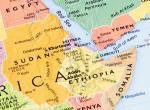
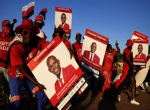
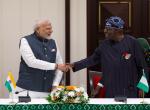
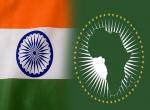

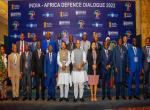

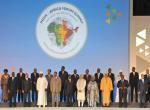
Post new comment